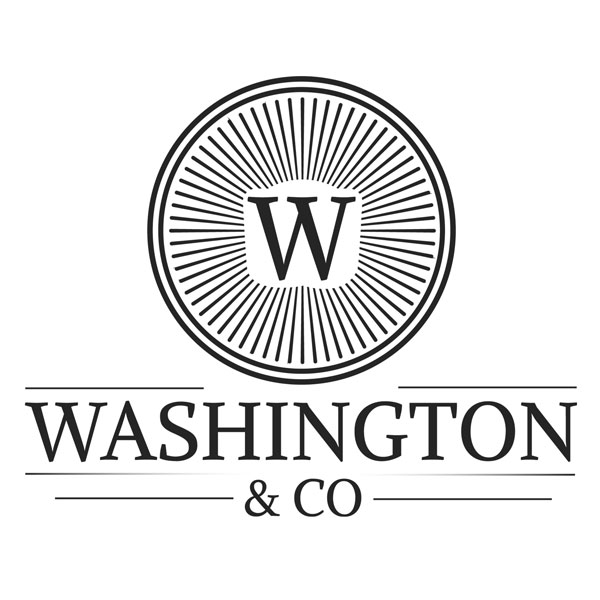Introduction:
Travel and meals are common expenses for many businesses, but navigating the rules around what’s deductible—and what isn’t—can be tricky. At Washington & Co Inc., we help business owners understand the complexities of tax deductions for business travel and meals to ensure you capture every eligible deduction without running afoul of IRS guidelines. Here’s what you need to know to maximize your deductions while staying compliant.
What Qualifies as a Deductible Business Travel Expense?
When traveling for business purposes, many expenses related to your trip are deductible. The key is that the travel must be ordinary, necessary, and directly related to your business activities. Here are some common expenses that typically qualify for a deduction:
- Transportation Costs: This includes airfare, train tickets, rental cars, and even mileage if you’re driving your own vehicle for business purposes. Don’t forget to include any parking fees and tolls.
- Lodging: Hotel or lodging costs incurred while away on business are fully deductible, as long as the stay is necessary for your business trip.
- Meals While Traveling: You can deduct 50% of the cost of meals while traveling for business. Keep in mind that the meal must be related to business activities (such as dining with a client or conducting business discussions over a meal).
- Other Travel-Related Expenses: Expenses like baggage fees, dry cleaning while traveling, and internet access fees necessary for work are also deductible.
How to Properly Deduct Business Meals
The IRS allows for a 50% deduction on meals that are directly related to the active conduct of your business. These meals can occur while traveling or in the context of a business meeting or entertaining clients. To ensure your meal expenses qualify for a deduction, they must meet the following criteria:
- Business Purpose: You must have a clear business purpose for the meal, such as discussing work with a client, customer, or employee.
- Substantiation: Keep receipts that include the date, location, people present, and the business relationship, as well as the purpose of the meeting.
- Reasonable Expense: The meal should not be overly lavish or extravagant given the circumstances.
What About 100% Deductible Meals?
While most business meals are 50% deductible, there are situations where meals may be fully deductible. For instance, food and beverages provided at a company event, party, or other social function for the benefit of employees are 100% deductible. Additionally, if meals are provided on your business premises primarily for the convenience of the employer, such as meals during business meetings, these too may be fully deductible.
Common Mistakes to Avoid with Travel and Meal Deductions
Understanding what is and isn’t deductible can prevent common pitfalls that might trigger audits or penalties. Here are some mistakes to watch out for:
- Combining Personal and Business Travel: While you can deduct expenses directly related to the business portion of your trip, personal travel costs aren’t deductible. If you extend a business trip for personal reasons, only the portion of the trip related to business is deductible. Be sure to keep clear records separating business and personal expenses.
- Failing to Keep Detailed Records: To claim travel and meal deductions, the IRS requires that you maintain detailed records, including receipts and explanations for the purpose of the expenses. Without this documentation, your deductions may be disallowed.
- Overstating Deductions for Meals: Some business owners mistakenly believe that all meal expenses are fully deductible. Be mindful of the 50% limit on most business meals and ensure you’re calculating the deductions correctly.
Tracking and Documenting Travel and Meal Expenses
The key to claiming deductions without issue is maintaining clear and thorough records. This includes keeping receipts and documenting the business purpose of each expense. For travel, record the dates, destination, and purpose of the trip. For meals, document who was present, the purpose of the meeting, and the relationship of the attendees to your business.
We recommend using a dedicated expense tracking system or app to keep track of receipts and categorize expenses in real time. At Washington & Co Inc., we can help you set up systems to track and organize these expenses, ensuring you maximize your deductions while staying in compliance with IRS rules.
Maximizing Tax Savings on Business Travel and Meals
There are several strategies to ensure you get the most out of your business travel and meal deductions:
- Plan Ahead for Client Entertainment: When scheduling business meals or travel, ensure they’re tied to clear business objectives, such as client meetings or conferences, to maximize deductible expenses.
- Take Advantage of Per Diem Rates: Instead of tracking actual meal expenses, some businesses opt to use the IRS per diem rate for meals and incidental expenses, which simplifies record-keeping. This can be particularly beneficial if actual expenses are modest.
- Separate Personal and Business Costs: If your trip combines personal and business purposes, carefully separate the expenses related to each. For example, if you attend a conference but stay an extra weekend for leisure, only the costs directly related to the conference (transportation, lodging, and meals) are deductible.
How Washington & Co Inc. Can Help
At Washington & Co Inc., we specialize in helping businesses optimize their tax strategies while staying compliant with IRS regulations. We can assist you in:
- Understanding what travel and meal expenses are deductible for your business.
- Setting up record-keeping systems to track and document your expenses.
- Ensuring you maximize tax savings while avoiding common deduction errors.
Conclusion
Maximizing deductions for business travel and meals is a great way to reduce your taxable income and improve your bottom line, but it’s important to follow IRS guidelines carefully. At Washington & Co Inc., we help you navigate the complexities of these deductions, ensuring that you stay compliant while taking full advantage of every eligible deduction.
Ready to learn how to maximize your travel and meal deductions? Contact us today to schedule a consultation and start saving more on your taxes.
